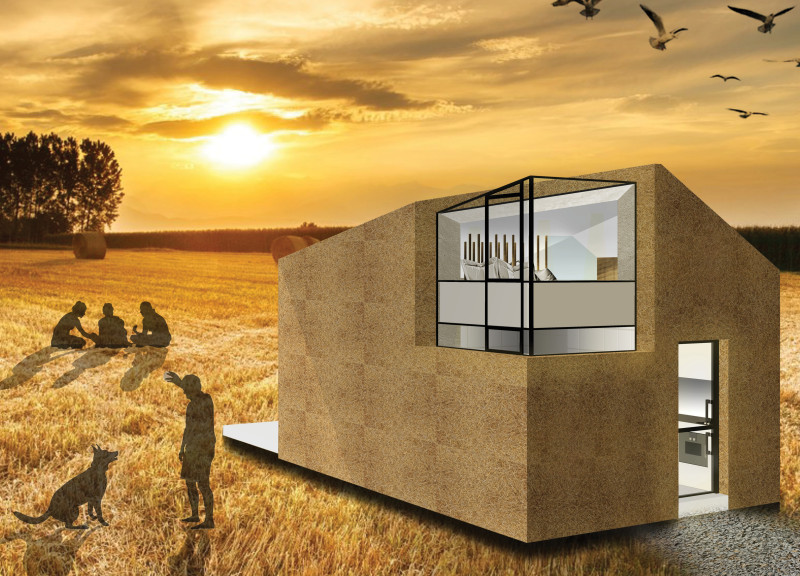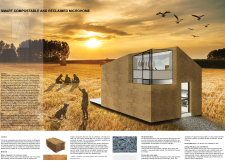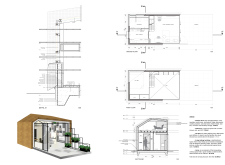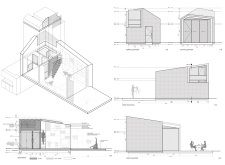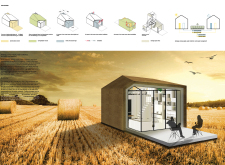5 key facts about this project
The Smart Compostable and Reclaimed Microhome is located in temperate areas on the edges of urban environments, where it addresses the need for affordable housing among young professionals. The design focuses on compact living, emphasizing functionality and minimalism to meet essential needs. The goal is to create a living space that not only looks modern but also supports a more sustainable way of life. This approach offers a fresh solution to the ongoing challenges in urban housing.
Materiality
The project uses a range of materials that promote both comfort and sustainability. Straw acts as thatch for the building envelope, providing a biodegradable and recyclable option. It offers excellent insulation, helping to keep energy costs low while minimizing environmental impact.
Reclaimed timber serves as the structural framework, particularly using reclaimed engineered Robinson oak. This material choice supports resource conservation and significantly reduces the carbon footprint associated with sourcing new timber, reinforcing the commitment to environmental care.
Recycled textile insulation, made from leftover denim and sweaters, reflects a sustainable reuse strategy. It enhances thermal performance while keeping waste from entering landfills. This innovative choice in materials contributes positively to the building's overall ecological impact.
Innovative technology
The design incorporates photovoltaic solar glass, enabling the microhome to generate energy while allowing plenty of natural light inside. This feature keeps living spaces bright and inviting, while also allowing residents to be more energy independent. It creates a strong relationship between indoor and outdoor areas, enhancing the overall living experience.
With a modular approach, the microhome can adjust to various site conditions. This flexibility allows for customization that fits into the local environment. Effective space utilization and access to natural light contribute to a peaceful and pleasant living atmosphere.


